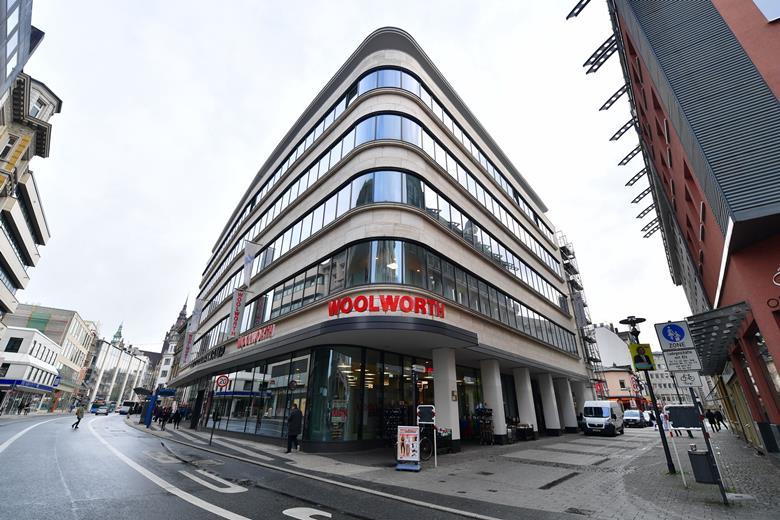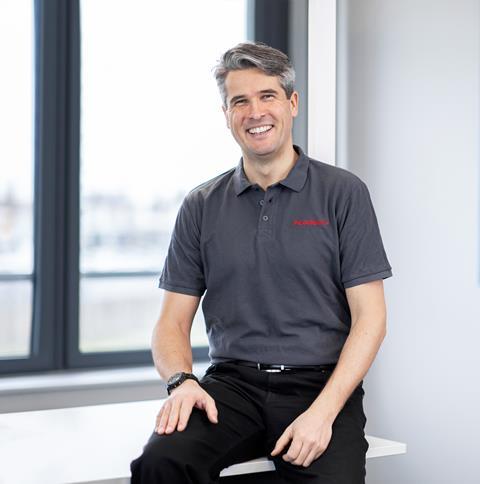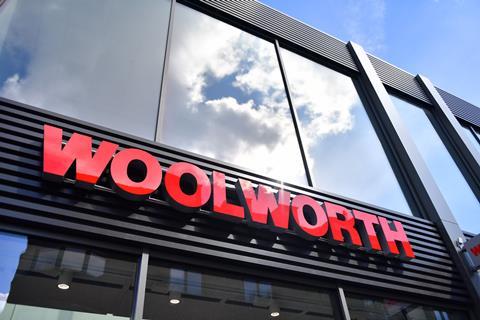Woolworth boss Roman Heini has UK return 'on bucket list'
2024.01.26

Woolworth Germany is growing at home and internationally
In one European market, the Woolworth name lives on. The retail company is not only surviving but expanding – and may even bring the famous name back to UK shores.
Woolworth Germany, which has no connection to the now defunct UK retailer other than also being parented by US trailblazer FW Woolworth, is opening new stores at pace.
Like its counterpart here in the UK, the German brand hit the buffers, collapsing into insolvency in 2009.
But under the subsequent ownership of Heinig family vehicle HH Holding, with an overhauled proposition and a reputation for value, Woolworth Germany is growing at home and after launching in Austria and Poland last year.
International ambitions
Woolworth Germany’s ambitions are being steered by Roman Heini, familiar to many in UK retail as the former joint managing director of value grocer Aldi from 2010 until 2014.
Heini has been at Woolworth Germany since late 2020, after joining from Lidl US, where he had been chair. Partly for family reasons, he wanted to return to Germany.

Roman Heini is taking Woolworth Germany on the expansion trail
He had known the owners of Woolworth Germany for some time and believed that since Germany and Europe more widely suffered similar challenges to the UK, such as a higher cost of living, there was the opportunity “to make Woolworth great again.”
The new Woolworth is a different beast from its pre-collapse predecessor. Formerly, Woolworth sold many branded goods, such as cosmetics, alongside categories including toys and confectionery. However, as price transparency increased driven by the rise of online, the retailer was increasingly unable to compete on such lines.
Now, the brand’s proposition is led by such categories as home goods and clothing basics like underwear and polo shirts. Woolworth sources product itself, enabling it to be much more price-competitive.
Heini says more than 90% of its merchandise is now own brand and offered at “unbeatable” prices. For instance, 6,000 of the 10,000 products that it sells are priced at €3 (£2.57) or below. He maintains: “To match that online, at least until today, is very difficult, if not impossible.”
Woolworth, which does not sell online, has around 640 shops; almost all are in Germany and a handful in Poland and Austria. The retailer believes it can operate successfully in catchments with a minimum population of 20,000 and sees potential for around 5,000 stores across Europe, including 100 per year in Germany.
It has big ambitions to grow further in all markets, as competitor value groups, including Action and Poundland owner Pepco, also expand internationally.
Mapping value success
Heini points to the success of US value specialists, such as Dollar Tree and Five Below, and sees similar potential in Europe. Woolworth also benefits from the fact that fellow non-food German retailer TEDi is under the same ownership. It already operates in 15 countries, and Woolworth is able to learn from its experience.

Woolworth does not sell online and has around 640 stores
He says: “There are over 300 million potential consumers in Europe, and no dominating player. The market is still there to be divided between the potential players for the future.”
At some point Heini might even bring Woolworth to the UK. He says Britain is on his “bucket list,” although nothing is imminent. “I don’t know of any brands where the recognition will be as high as it is in Britain, without having any stores,” he says.
“We have secured all the trademarks for the brand for the whole of Europe, so we could operate if we make the decision and go for it – not in the near future, but it may be in the mix for the mid- or long-term future.”
Climbing sales
Woolworth’s sales over Christmas climbed 10% year on year. Heini says: ”The fact that Woolworth was able to achieve this result despite the rather weak performance of the retail sector clearly speaks for our strategy.”
After the pandemic turmoil of the past few years, Heini acknowledges there is always the possibility of disruptive “black swan events” and the conflict affecting the Red Sea supply chain is a concern.
But he anticipates a bright future for Woolworths, which is not only profitable but targeting €1bn sales in the current year ending in April. Assuming its continued growth, a return to the UK may just be one step closer.

















 Visitor Registration
Visitor Registration Booth Application
Booth Application